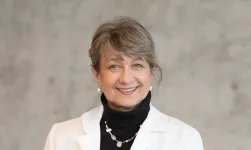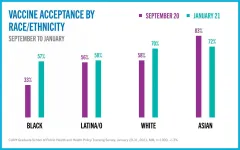According to researchers, this recommended therapy is often not offered to elderly patients out of concern that they will not tolerate such an intensive treatment regimen. In a new study, they found that older patients who received the therapy had outcomes comparable with those of younger patients (under 70 years old). The single-institution study from the Ochsner Clinic Foundation and The University of Queensland-Ochsner Clinical School, New Orleans, was selected for the 2020 Southern Surgical Association Program and published online as an "article in press" by the Journal of the American College of Surgeons in advance of print.
Over the past three decades, incidence rates for cancers of the esophagus, the eighth most common cancer and sixth leading cause of cancer-related deaths worldwide, have risen in the U.S. and other developed countries.1,2,3,4 Recent evidence has shown that multimodal treatment consisting of NACR followed by surgical resection is considered the standard of care for stage II-III cancers.5,6,7,8
Although the toxicity of this optimal multimodality therapy has been low, older patients with potentially curable stage II/III disease are often not considered for this approach due to its perceived risks. Concerns prevail about frailty and co-morbidities that may accompany advanced age, patient and physician pre-conceived notions about cancer care in the elderly, patient choice in the context of life stage, and adaptability of the elderly to life-style changes brought about by cancer therapy.9
"Multiple studies have documented low utilization of esophagectomy in elderly patient populations with potentially curable esophageal or esophagogastric cancer despite current guidelines, which recommend curative-intent NACR followed by surgical resection," the authors wrote. (Esophagectomy is the surgical removal of some or all of the esophagus.)
In a previous study of more than 21,000 patients with a form of cancer known as esophageal adenocarcinoma, researchers analyzed 2004-2014 data from the Surveillance, Epidemiology, and End Results (SEER) Program database and found that older patients (over 70 years) were 50 percent less likely to undergo esophagectomy than were younger patients (under 70 years).10 Only 16.9 percent of patients over 70 underwent surgery. This approach was taken despite current National Comprehensive Cancer Network (NCCN) guidelines that recommend curative-intent NACR followed by surgery.11
In the current study, surgical oncologist John S. Bolton, MD, and colleagues analyzed 2004-2019 data from the 405 cancer patients who had esophagectomies with curative intent. Data collected included demographic information, tumor stage, preoperative co-morbidity scores, treatment variables, and short- and long-term outcomes. The patients were split into those who were over 70 years old ("older") and those who were under 70 ("younger").
After excluding 62 stage I cancer patients not receiving NACR, 343 patients remained. Of these, 282 patients received NACR prior to esophagectomy including 188 patients younger than age 70 and 94 patients 70 years or older, who serve as the basis for this study.
Although preoperative risk scoring and postoperative atrial arrythmias were higher among the older group, the rate of postoperative complication severity scores, perioperative mortality rates, and lengths of stay were similar. Long term age-adjusted survival was 44.8 percent at 5 years for the older group and 39 percent for the younger group.
These results suggest that optimal, curative-intent triple modality therapy can be used successfully in a sizeable segment of older patients with esophageal cancers. The researchers found evidence at their institution that, over time, older patients are increasingly getting triple modality therapy.
"Even though our results are not randomized, these findings provide a strong indication that declining to perform a surgical resection significantly reduces the likelihood of a cure for older patients who are deemed fit for the operation," said Dr. Bolton.
The authors note it's important to rule out patients for surgery who have unstable or chronic conditions of the heart, liver, or lungs. They further recommend that prospective patients regularly achieve certain metabolic physical fitness goals, undergo non-invasive cardiac stress testing, and encourage patients to perform a daily progressive exercise program prior to surgery.
A comprehensive prehabilitation program can potentially prepare more elderly patients for optimal triple modality therapy12 and "this is a current focus of our group for these patients," they write.
One such program is the American College of Surgeons Strong for Surgery, a public health campaign that engages patients and their surgeons to improve overall health and increase the likelihood of a positive surgical outcome. Preoperative checklists serve as a communication tool for patients and clinicians to consider common risk areas.
INFORMATION:
Other study authors include W. Peter Sawyer, MD, Nathan M Bolton, MD, Russell Brown, MD, FACS, from Department of Surgery, Ochsner Clinic Foundation; and Xinyi Luo, MD, and Andrew M. Welch, MD, from The University of Queensland-Ochsner Clinical School.
"FACS" designates that a surgeon is a Fellow of the American College of Surgeons.
Citation: 15 Year Experience with Multimodality Therapy Including Esophagectomy for Elderly Patients with Locoregional Esophageal Cancers. Journal of the American College of Surgeons. DOI: 10.1016/j.jamcollsurg.2020.11.027
1: Domper Arnal MJ, Ferrández Arenas Á, Lanas Arbeloa Á. Esophageal cancer: Risk factors, screening and endoscopic treatment in Western and Eastern countries. World J Gastroenterol. 2015;21(26):7933-7943. doi:10.3748/wjg.v21.i26.7933
2: Islami F, DeSantis CE, Jemal A. Incidence Trends of Esophageal and Gastric Cancer Subtypes by Race, Ethnicity, and Age in the United States, 1997-2014. Clin Gastroenterol Hepatol. 2019 Feb;17(3):429-439. doi: 10.1016/j.cgh.2018.05.044. Epub 2018 Jun 11. PMID: 29902641
3: Arnold M, Laversanne M, Brown LM, Devesa SS, Bray F. Predicting the Future Burden of Esophageal Cancer by Histological Subtype: International Trends in Incidence up to 2030. Am J Gastroenterol. 2017 Aug;112(8):1247-1255. Doi: 10.1038/ajg.2017.155.Epub 2017 Jun 6. PMID: 28585555
4: Siegel R, Miller K, Jemal A. Cancer Statistics, 2020. CA CANCER J CLIN 2020;70:7-30
https://acsjournals.onlinelibrary.wiley.com/doi/epdf/10.3322/caac.21590
5: van Hagen P, Hulshof J.J.B, van Lanschot E.W, et al. Preoperative Chemoradiotherapy for Esophageal or Junctional Cancer. N Engl J Med 2012;366:2074-84.
6: Borggreve AS, Kingma BF, Domrachev SA, et al. Surgical treatment of esophageal cancer in the era of multimodality management. Ann N Y Acad Sci. 2018;1434(1):192-209. doi:10.1111/nyas.13677
7: Lordick F, Mariette C, Haustermans K, et al. Oesophageal cancer: ESMO Clinical Practice Guidelines for diagnosis, treatment and follow-up. Ann Oncol. 2016;27:v50-7. 2016/09/25.
https://doi.org/10.1093/annonc/mdw329.
8: Ajani JA, D'Amico TA, Almhanna K, et al. Esophageal and esophagogastric junction cancers, version 1.2015. J Natl Compr Canc Netw. 2015;13:194-227 2015/02/19.
9: Swaminathan D, Swaminathan V. Geriatric oncology: problems with under-treatment within this population. Cancer Biol Med. 2015;12(4):275-283. doi:10.749N7/j.issn.2095-3941.2015.0081
10: Schlottmann F, Strassle P, Molena D, Patti M. Influence of Patients' Age in the Utilization of Esophagectomy for Esophageal Adenocarcinoma. J Laparoendosc & Advanced Surg Tech. 2019;29(2):213-217. doi:10.1089/lap.2018.0434
11: NCCN Practice Guidelines in Oncology, "Esophageal and Esophagogastric Junction Cancers", Version 4.2020. Available at http://www.nccn.org/professionals/physician_gls/pdf/esophageal_blocks.pdf. Accessed February 8, 2021.
12: Minnella EM, Awasthi R, Loiselle SE, et al. Effect of Exercise and Nutrition Prehabilitation on Functional Capacity in Esophagogastric Cancer Surgery: A Randomized Clinical Trial. JAMA Surg 2018 Dec 1;153(12): 1081-1089. doi: 10.1001/jamasurg.2018.1645
About the American College of Surgeons The American College of Surgeons is a scientific and educational organization of surgeons that was founded in 1913 to raise the standards of surgical practice and improve the quality of care for all surgical patients. The College is dedicated to the ethical and competent practice of surgery. Its achievements have significantly influenced the course of scientific surgery in America and have established it as an important advocate for all surgical patients. The College has more than 82,000 members and is the largest organization of surgeons in the world. For more information, visit http://www.facs.org.




